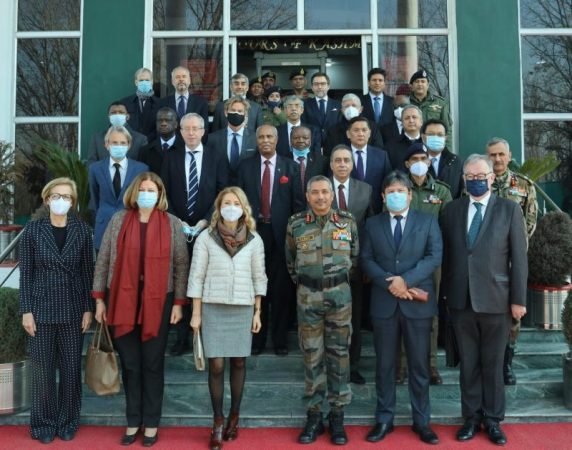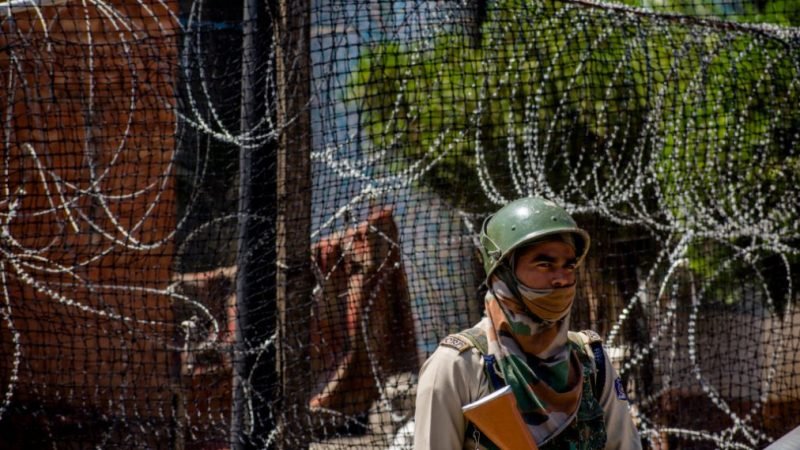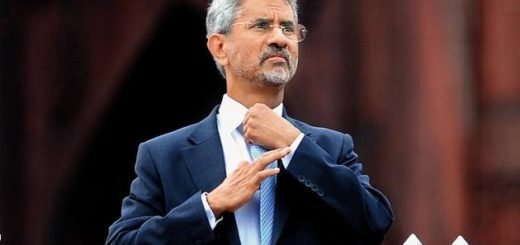Third foreign envoy visit in Kashmir valley post-article 370 abrogation

After the revocation of Article 370, Jammu and Kashmir marked its third visit of foreign envoys on 17th February 2021, to assess the “on-ground situation” in Kashmir by the international community. The visit was organized one week after the valley celebrated the restoration of 4G internet services on 5th February 2021 exactly 18 months after the Indian Government granted it the recognition of Union Territory by amending its special status. The two-day visit is said to include 24 envoys from European Union and African countries, namely, Chile, Brazil, Cuba, Bolivia, Estonia, Finland, France, Ireland, Netherlands, Portugal, EU, Belgium, Spain, Sweden, Italy, Bangladesh, Eritrea, Cote d’Ivoire, Ghana, Senegal, Malaysia, Tajikistan, Kyrgyzstan.
Previously, the first foreign delegation of 27 members arrived in October 2019, after the Indian government sabotaged Article 370 on 5 August 2019, further dividing the state into two Union Territories – Jammu & Kashmir and Ladakh, subsequently followed by the second visit in February 2020 before the onset of the novel coronavirus. It should be noted that all the three visits of foreign dignitaries were organized via a non-formal channel at the invitation of Delhi based think tank – the International Institute of Non-Aligned Studies to brief the foreign envoys about how terrorism was affecting India and what all development measures have been undertaken in the valley.
The Indian Official stated that the February 21 visit will be more extensive than the previous two visits given that the delegation will meet the newly elected representatives of District Development Council, business chambers and members of the civil society. Further, briefing them about the security measures, implementation of the back to village and block grievance redressal programme and the frequent ceasefire violation by Pakistan. Whereas, before the third visit, the Indian authorities scored to dismantle the security bunkers and barricades in Srinagar as an apparent bid to decrease the visibility of security personnel, thus demonstrating the state of “normalcy” in the new Union Territory. Though, the former Chief Minister of J&K, Omar Abdullah attacked the government-backed visits as “guided tours” serving no purpose but acting as a smokescreen. Further emphasizing that the visiting delegation is only allowed to meet the “hand-picked individuals” signifying that the retaining of opposition leaders from the envoys falls to contradict the government’s act of restoring “normalcy” in Kashmir.
What happened on 5 August 2019?
The territory of Kashmir has been a bone of contention between India and Pakistan. Both the countries claim substantial portions of the particular land as their legitimate territory but have officially and temporarily accepted LOC as a demarcated international border, where each side has accepted a ceasefire since July 1949 of Karachi Agreement. The territory of Jammu and Kashmir which is ornamentally referred to as “crown of India ”, enjoyed special and autonomous privilege under Article 370 of the Indian Constitution, thereby distancing itself from the interference of the central government in their domestic matters. J&K was granted special status with separate constitution and Flag on 26 November 1949 where the Central Government was restricted to legislate only in matters of defence, foreign affairs and communication. The sui generis provision has been a subject of widespread debate and Political agendas of Indian political parties. On 5 August 2019, the special status of Jammu & Kashmir was expunged through a presidential order thereby abrogating Article 370 and 35 A of the Indian constitution. The territory was then demarcated as Jammu & Kashmir Union territory and Ladakh Union territory.
This unprecedented move attracted massive uproar and demonstration countrywide, seeking to undo the changes made in Jammu and Kashmir. Since then, the territory was under curfew and lockdown for 1 year 6 months and 9 days which was lifted on 10 February 2021. The central government increased security deployment and insulated the region from foreign interference, detained the political leaders, blocked media passage and banned internet access. The ban on the internet aroused huge conundrums for the civilians, which impeded their economic, educational, health, commercial activities. There have been reported human rights violations and denial of fundamental rights to the citizens. The international community has registered a mixed response on the issue, some considered it as India’s Internal matter, while to others it was unjust and unacceptable. The BJP led central government adamantly hailed the abrogation of article 370 as a robust step to unite and integrate the land of Jammu and Kashmir to the rest of India under its ‘Akhand Bharat’ principle. The ruling political leaders have staunchly flaked any external interference in their “internal matter”. Around 23 petitions have been filed before the Supreme Court of India to review the legality and constitutional validity of the matter.

Hence, it should be noted that the visit of February 17 is significant to India for mainly two reasons. First, as European Union has been following human rights situation in J&K closely and is issuing statements over the past 18 months, calling the Indian government to restraint, de-escalate tension and resolute the dispute via constructive dialogue and political engagement. Second, the Indian Prime Minister is expected to attend the EU-India summit in Portugal on May 8 2021 and the engagement is expected to discuss the group assessment of the situation. Hence, it can be said that these efforts of Indian government aimed to showcase the centre’s efforts of reviving democracy at the grass root level, especially after August 5 2019.
Lastly, the land of Jammu and Kashmir is prone to militancy. The rising population of unemployed youths and their deteriorating living standard is posing a grave challenge to peace and prosperity in the region. The civilians of Jammu & Kashmir like any other Indians have basic needs & aspirations of “just life” to be fulfilled. This is the most crucial time to incorporate the talent and skill of the youths of Jammu & Kashmir for the growth and development of the territory, with adequate education and employment opportunities. The Government of India has been initiating a plethora of developmental projects to uplift and improve the economy of the territory. However, the effectiveness of these policies will be determined in the time to come. In the present scenario, the need for exigency is to respect and preserve the diversity of Jammu and Kashmir and integrate the far-flung areas which are bereft of “just life” to the mainstream of development.


















